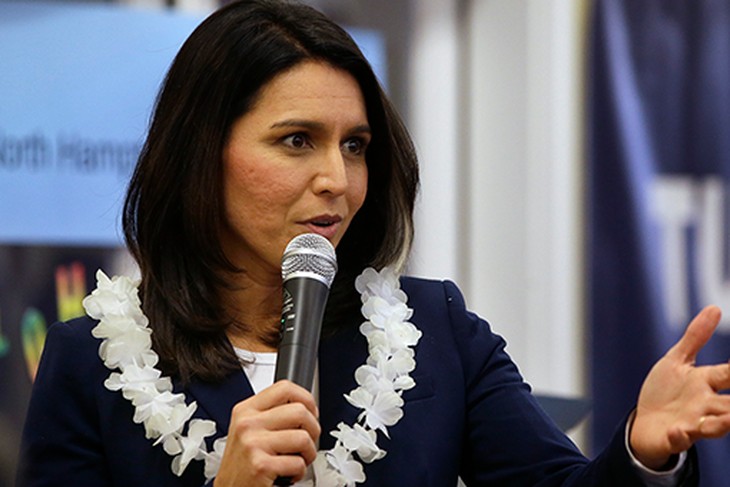Some years ago, I was conversing with a mid-level executive of a medium sized business. He said he was at a management meeting about setting priorities. There was a lot of discussion. At one point the CEO dropped by and said, “Setting priorities means how you spend your money. In business, if you say something is a a priority but it has no effect on your financials, then you have not made it a priority.”
That story made me think of the time I was stationed at Fort Bragg, North Carolina in the 1980s. One assignment I had there was chief of media relations for Fort Bragg and XVIII Airborne Corps. WRAL-TV was the local CBS affiliate and during my tenure they assigned a new reporter to cover the area. I invited him to come out to our headquarters to be given a tour of the base and a comprehensive briefing on what we did and how. He never came. Every time I try to invite him again he would always tell me, “It’s high on my priority list but I just don’t have the time.”
Think that through: It's high priority but I won't spend any time doing it.
We have only two assets to manage, to schedule: time and money. John Wesley talked about both. In his sermon entitled, “The use of money,” Wesley said:
• We ought to gain all we can gain but this is it is certain we ought not to do; we ought not to gain money at the expense of life, nor at the expense of our health.
• After having first, gained all-you-can and second, saved all you can, then give all you can.
Christians, said Wesley, can be distinguished from non-Christians by only two things: how we spend our money and how we spend our time. As for time, Wesley was more detailed:
o Study the Bible for an hour each day
o Pray about specific things, especially about how we spend our money.
o Get enough sleep everyday.
o Our spare time activities should honor God.
o Live according to biblical teachings.
These considerations lead to the question of my title, what are your bill payers? I bring the question from my time assigned to the Army staff at the Pentagon. Every so often the Army would be directed to carry out mandates that were unfunded. Either Congress ordered them but didn't legislate funding for them, or the president ordered them but did not transfer funding for them.
So, sometimes I would go to a meeting about, say, the unfunded procurement of 250,000 left threaded kanootin valves, where the briefer would explain the cost estimate of 25 million dollars and then everyone would launch into a discussion of the question, what are the bill payers?
Which was to say, what were the other budget lines we were going to raid to pay for this new mandate? Who are the Peters we are going to rob to pay Paul, and how much are we going to take from each one? It was rarely easy to answer.
The question is about setting priorities, in which clarity is useful. When I was training as a free-fall parachutist, I asked the instructor, “If my main canopy doesn’t inflate, how long will I have to deploy my reserve parachute?” He said, “You will have the rest of your life.”
Perhaps that gives a different slant on ordering one's life. How long do you have to wash the car? How long do you have to mow the lawn come springtime? How long do we have to watch TV? “The rest of my life” does not make sense as an answer for those questions, nor for almost all the things we fill our lives with. But it does make sense to this question: How long do we have to become devoted disciples of Jesus Christ?
Jesus talked a lot about the right ordering of personal priorities. The entire Sermon on the Mount is pretty much a motivational speech about that. At one point, Jesus recounts what the people seemed to be spending most of their time and money on: their next meal and what they will wear. Well, food and clothing are basic necessities. But Jesus said not to worry about them, but instead, “… seek first the kingdom of God and his righteousness, and all these things will be added to you.”
What Jesus said is actually a thread that runs through the Bible in both Testaments. Micah chapter 6, says, God “has told you, oh mortal, what is good; and what does the Lord require of you but to do justice, and to love kindness, and to walk humbly with your God?” How long do we have to do that? Well, we have the rest of our lives.
Jesus told a parable in Luke 12 about a landholder who produced the huge crop, so he decided to build bigger warehouses to store it and then retire to eat and drink and be merry. The problem was he was already going to die that night. What was going to become of all his wealth then? He thought he was fixed for the rest of his life. And so he was, all 12 hours of it.
We do indeed have the rest of our lives to get right with God and live as his disciples. That gives it more urgency rather than less, doesn’t it? After all, we do not have forever to prepare for forever.
Think about how many parables Jesus told about setting the right priorities. He knew that setting priorities rightly means choosing rightly. In Luke 14, a man holds a banquet but all the guests he invited made silly excuses not to attend. But this fellow is going to host a banquet no matter what. So the man brings in the poor and the blind and the lame instead.
I thought of that parable when I read a few years ago of a jilted bride whose fiancé broke it off only a few days before the wedding. By then everything had been bought for the reception and there was no refund for the room at the hotel to hold the reception in. So, she held the reception party anyway. She invited all the homeless people from the Union Mission in the downtown area to come. True story – I think it was in San Francisco.
In Matthew 13 Jesus told a parable of a man who found treasure buried in a field. The problem was he did not own the field. So, says Jesus, the man went and sold everything he had to raise the money to buy the field and the treasure underneath it.
Compare that parable with the time a wealthy young man went to Jesus one day asked, “What do I have to do to achieve eternal life?” Jesus’ first answer was one any rabbi would have given: keep the Commandments. The young man said, I have done this since I was a child. Then Jesus said, fine, go sell everything you have and give it to the poor, then come and follow me. That was not bill payer the young man was willing to raid. So he left Jesus and never saw him again.
Setting priorities always means asking the question in some form, What is my bill payer? Time? Money? Both? What will it take to become more holy, more conformed to Christ likeness, to live as and lead others to become disciples of Jesus Christ?
Remember we have only two resources: time and money. For most of us, our scarcest commodity is time, not money. What do we fill our days with? Few of us have a lot of slack in our calendars. We have to drop something to fit something else in. So it is with moving on to Christian perfection.
Aristotle pondered what is virtue and came up with a very simple definition. Virtue is excellence made habitual. Paul indicates in Philippians chapter 4 that excellence is whatever is true, noble, right, pure, lovely, admirable, or praiseworthy, and those are the things we should spend our time on.
Christian Author and speaker Patrick Morley said that American Christians have fallen into the fallacy of addition, thinking that we can increase godliness without subtracting ungodliness. Morley said the fallacy of addition is:
• The belief that we can simply add Christ it to our lives, but not subtract sin.
• Thinking we can change what we believe without changing what we do.
• And thinking we can be revived without being reformed.
What is it that hinders each of us from greater Christlikeness, or hinders our churches from a higher level of living as and leading others to become disciples of Jesus Christ? Those are the things that probably should be our bill payers.
Another way of identifying bill payers is the technique of planned neglect. Author Dorothy Haskins told of a noted concert violinist who explained that her mastery of the violin was due to planned neglect. She explained, “There were many things that used to demand my time when I went to my room after breakfast. I made my bed, straightened the room, dusted, and did whatever seem necessary. When I finished my work, I turned my violin practice. That system prevented me from accomplishing what I should have done with the violin. So, I reversed things. I deliberately planned to neglect everything until my practice was complete. And that program of planned neglect is the secret of my success.”
A rightly prioritized life is one of no regrets. The body of the great African explorer and missionary, David Livingstone, was buried in England where he was born, but his heart was buried in the Africa he loved. At the foot of a tall tree in a small African village the natives dug a hole and placed in it the heart of this man whom they loved and respected.
So, I ask myself: If my heart was to be buried in the place I loved most during life, where would it be? In my bank account? In my office? In front of a computer screen or television? Is the place my heart is now different from where it should be?
A fellow named Milt Rood worked for decades in Spokane as a car salesman. But his main orientation was with the Union Gospel Mission to work with juvenile delinquents. Every week for years he patiently taught the Bible and prayed with young boys in trouble. Then Milt took ill and died very quickly. After the funeral, Milt’s sales manager remarked, "It's interesting that at the funeral no one brought up how many cars he had sold."
In the entire time I have spent in pastoral ministry, I never heard anyone nearing the end of life say that they wished they had spent less time serving God and neighbor.
What are your bill payers to set the right priorities for living?












